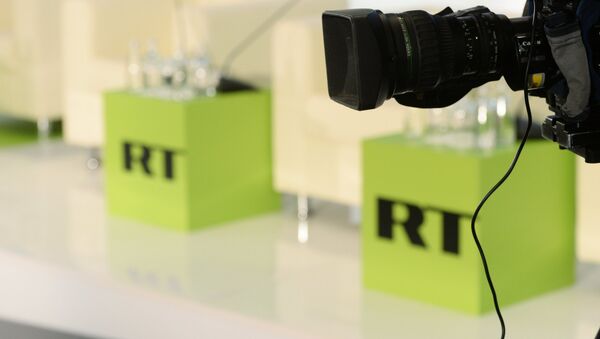On Thursday, Twitter announced that it would ban Russian media outlets Sputnik and RT from advertising on its platform. The company said it made its decision after doing some "retrospective work" surrounding the 2016 US presidential race and in light of "the US intelligence community's conclusion that both RT and Sputnik attempted to interfere with the election on behalf of the Russian government." Sputnik and RT Editor-in-Chief Margarita Simonyan issued a response, while Twitter users blasted the company, claiming its decision was censorship, pure and simple.
In a separate op-ed, RT revealed that in spite of Twitter's tough claims Thursday about Russian media's alleged interference in the US vote, back during the race itself the company was the one trying to convince the Russian broadcaster to make a major ad buy to spread its influence among voters.
According to RT, Twitter egged the network on to spend lavishly, showing off its platform and emphasizing its broad reach among voters. Twitter promised RT a series of perks, including a customized emojoi-hashtag to increase RT's brand awareness, customized analytics and research, exclusive closed beta testing of Twitter's new features, and even a dedicated team to help the broadcaster tailor its content and strategy.
Hope @jack won’t forget to tell @congressdotgov how @Twitter pitched @RT_com to spend big $$s on US elex ad campaign. pic.twitter.com/7GqoEoSaY8
— Маргарита Симоньян (@M_Simonyan) 26 октября 2017 г.
RT did Twitter the courtesy of not releasing any of the confidential financial details behind the proposal, nor the names of the people involved, but did release a screenshot of a Twitter-created 'Mission Statement' which called on RT to "Deliver an unbiased point of view of the US Elections with an edge, utilizing the powerful technology of Twitter to distribute the message in real-time."
"Deliver an unbiased point view of the US Elections with an edge utilizing the powerful technology of Twitter in real-time". Curious...(2/2) pic.twitter.com/V2VjSH70er
— Маргарита Симоньян (@M_Simonyan) 26 октября 2017 г.
What happened to the Twitter offer? According to RT, the broadcaster declined it over its excessive price tag, and lack of faith that the campaign would serve the network's interests.
Instead, RT went with the traditional road, spending just shy of $275k on conventional advertising of its news coverage on Twitter in 2016, in line with broad media industry standards. According to Karnovich-Valua, only a fraction of that actually went to US election-related coverage. Furthermore, in 2017, RT actually cut its Twitter advertising, citing "unsatisfying results" from the year before.



